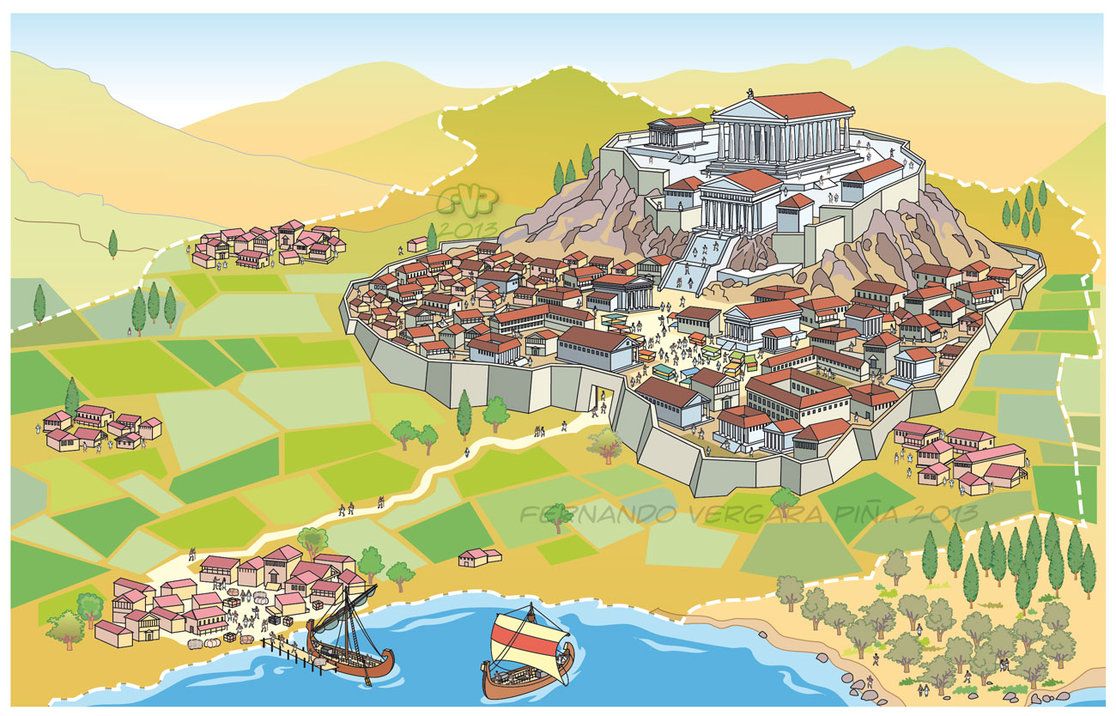Posts tagged government

The Greek Poleis
0Archaic Greece was the period that witnessed the rise of the polis states. Archaic Greece thrived during the era around 800-480 BC (Brand, n.d.). The founding of these city-states was a breakthrough for human civilization. A study of all the occurrences of the word polis in the Archaic and Classical sources showed that there are some 11,000 which shows the importance and relevance of this new way of life (Hansen, 2006). This period brought people into a well-structured community and away from poverty living in small rural villages as nomadic groups.
A new form of Government: During Greek dark ages people lived scattered in small farming villages (History.com Editors, 2010). The Archaic period brought two revolutionary forms of government, the Oligarchy in Sparta and the Democracy in Athens. Sparta was predominantly an Oligarchy where the military men in a democratic vote appointed the Ephors to supervise the kings and legislative branch of the government. Sparta had a complicated form of government that consisted of predominantly Oligarchy, Democracy, Monarchy and Tyranny (Hornblower, 2019).
On the other hand, Athenian democracy was separated into three parts: The Assembly, The Council, and The Courts. Athens was the first city-state to have a proper and effective form of democracy. It was very straight forward, mostly every Athenian citizen had a vote, the majority ruled (Brand, n.d.). There was abuse by wealthy aristocrats and noblemen but Athenian democracy was far from perfect with characteristics like slavery, gender bias, and control by rich aristocrats.
Community-based life: The community became more important than any individual. The loyalty to a polis central government was cherished as a central value of life. The new world they lived in within the city-state was regarded as a form of life-improving factor. In Sparta it is evident with practices like the Syssitia where Spartan men were eligible to join exclusive dining, men competed ferociously to get into a group (Brand, n.d.).
The people make up the polis: In contradiction with any prior civilization in Archaic Greece, the people were more important than temples, structures, and stones. People were the essence of the existence of the polis. This is evident during the evacuation of Athens “Themistocles organized the naval resistance and the evacuation of the city of Athens itself” (Brand, n.d.) it showed that Athens itself was not important as a polis that can be rebuilt but rather the people that lived in it.
Economic powerhouse: The polis city-state was an economic powerhouse promoting a marketplace for trade and agriculture (Hansen, 2006). The olive oil and pottery industries were booming and served as an export market to pay for the large amounts of grain that were used to feed the Athenian growing population (Brand, n.d.). Democratic Athens attracted immigrants that enriched the city intellectually and in trade. “They worked as merchants, craftsmen and in other lucrative trades such as philosophers who served as private tutors to the sons of wealthy Athenians” (Brand, n.d.).
In conclusion, Greece during the Archaic period did not always have the same shape and size polis. Poleis changed over time in shape, size, and location. Governance was also another aspect that had a progressive momentum at times and a controlled Monarchy in others (Brand, n.d.). Wars internally among Greeks and with external powers like the Persians were certainly the most important factor that shaped the change in the structure and governance of the city-state.
Reference:
Brand, P. J. (n.d.). Athens & Sparta: Democracy vs. Dictatorship [PDF].
History.com Editors. (2010, March 05). Ancient Greece. Retrieved June 23, 2019, from https://www.history.com/topics/ancient-history/ancient-greece
Hornblower, S. (2019, June 20). Ancient Greek civilization. Retrieved June 23, 2019, from https://www.britannica.com/place/ancient-Greece
Hansen, M. H. (2006). Polis: An introduction to the ancient Greek city-state. Retrieved from https://ebookcentral.proquest.com